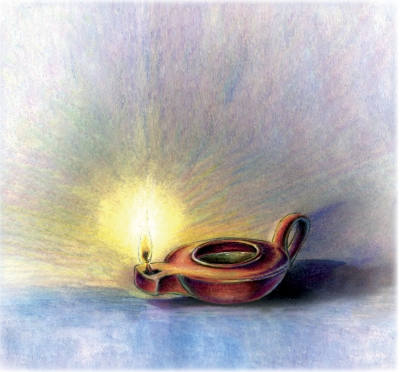When we read the Gospels, it is important to remember that the words of Jesus are those of an Eastern man. His words reflect the customs and idioms that would have been readily understood by those he taught.
In the Gospel of Matthew, we find a verse that becomes very clear when we “see” it through the “eyes” of the Easterner.
Matthew 6:22:
The light of the body is the eye: if therefore thine eye be single, thy whole body shall be full of light.
To the Westerner, this verse seems to be talking about the physical body and the physical eye. But Jesus was teaching spiritual truths here. Bishop K. C. Pillai taught our ministry, “Eastern people are spiritual people.” He explained that Easterners think 98 percent of life is spiritual and 2 percent is physical. This statement emphasizes the extent that the Eastern man is concerned with spiritual matters as opposed to the physical (food, clothing, and shelter). Looking at Matthew 6:22 in terms of the idiomatic usage of the words in Eastern culture enables us to see that Jesus was talking about spiritual matters in this verse.
Matthew 6:22:
The light of the body is the eye….
“Light” in this verse refers to the common oil lamp that provided light day and night as it burned in the Eastern home. “Body” stands for the life of an individual. “Eye” represents spiritual understanding or spiritual thinking. So, the first part of Matthew 6:22 is clearer when we understand the idiomatic usage of the words: “The light of our life is spiritual understanding.”
Then we come to the next part of Matthew 6:22:
…if therefore thine eye [spiritual understanding] be single, thy whole body [life] shall be full of light.
The gap here in our understanding is the word “single.” What does it mean to have our spiritual understanding be single? We can get help from both our Greek and Aramaic resources.
By checking a concordance, we see that the Greek word is haplous, translated in the King James Version as “single.” In his lexicon, E. W. Bullinger shows that “single” means “in one way” as opposed to two-fold or double. Therefore, we are to let our “eye,” our thinking or spiritual understanding, be one way—on God and His Word.
Looking at our Aramaic-English Interlinear New Testament, we see in Matthew 6:22 that instead of the word “single,” the Aramaic word is translated “simple.” According to Aramaic scholar George M. Lamsa, this is the word peshitta, which is derived from pashat, “to be straight, simple, sincere, plain, and true.” Therefore, our thinking or spiritual understanding should likewise be straight, simple, and true. Our ministry’s Aramaic works are based on the Peshitta, or “simple,” text. In More Light on the Gospel, Dr. Lamsa notes, “The gospel of Jesus Christ is simple and direct, and it needs no commentaries in its original setting.”
Jesus taught the people that if their spiritual understanding was direct, simple, straight, and one way toward God and His Word, then their entire lives would be full of light. We too live this way as we fill our lives with the light of God’s Word and focus our thoughts on spiritual matters.
Colossians 3:2:
Set your affection on things above, not on things on the earth.
This is a reprint from the March/April 2013 issue of The Way Magazine.
Copyright© 2013 by The Way International. All rights reserved.
For more information on subscribing to The Way Magazine, Click Here

